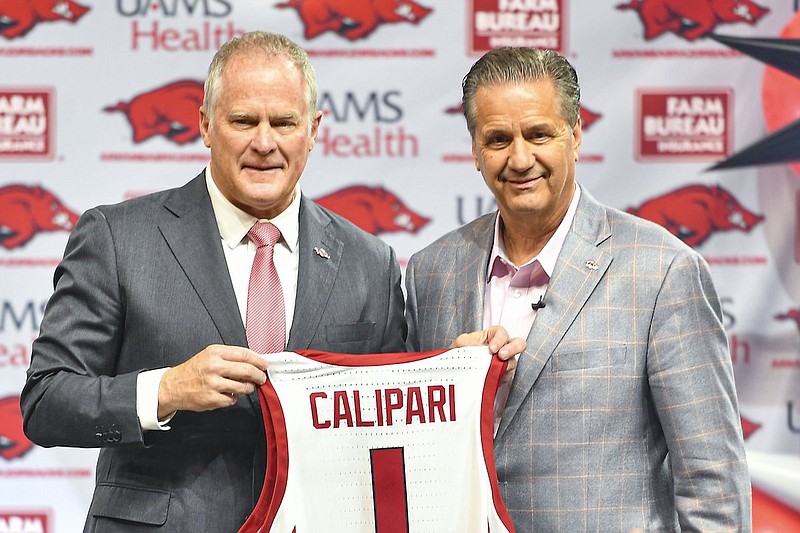In a recent statement that has sent shockwaves through the sports community, Arkansas Athletic Director Hunter Yurachek publicly expressed his dissatisfaction with Coach John Calipari’s coaching methods. Yurachek’s comments mark a significant turn of events, given Calipari’s storied career and reputation as one of the most successful and influential coaches in college basketball history.
Hunter Yurachek’s remarks highlight a growing frustration with Calipari’s approach to coaching, which has come under scrutiny in recent times. Yurachek stated, “I’m not happy with Coach John Calipari’s method of coaching. I regret ever signing him to my team.” This blunt assessment underscores a disconnect between the expectations of the athletic department and Calipari’s coaching philosophy, which is renowned for its emphasis on recruiting top talent and pushing them towards NBA readiness.
Calipari, who previously led the University of Kentucky to a national championship and has a reputation for developing NBA talent, was brought in with high hopes for transforming the Arkansas basketball program. His coaching style, characterized by a strong focus on individual development and a high-tempo, aggressive game plan, was anticipated to bring immediate success. However, the results have not aligned with Yurachek’s vision or the program’s goals.
Yurachek’s dissatisfaction is rooted in several factors. Firstly, the team’s performance under Calipari’s leadership has not met the high expectations set by the athletic department. The program has struggled with consistency, and the hoped-for turnaround has not materialized. Additionally, there may be underlying issues related to team dynamics and player development that have not been addressed effectively, leading to discontent among stakeholders.
The decision to publicly criticize Calipari is a rare move for an athletic director and signals a broader issue within the organization. Such public statements can have far-reaching implications, including potential impacts on recruiting and the overall morale of the team. Yurachek’s regret and dissatisfaction could reflect deeper concerns about the direction of the program and whether Calipari’s methods are the right fit for Arkansas.
In response to these developments, it will be crucial for both Yurachek and Calipari to address the issues at hand and work towards finding common ground. The focus now must shift to reassessing the coaching strategy and implementing changes that align with the program’s long-term objectives. If both parties can engage in constructive dialogue and realign their goals, there may still be an opportunity to restore stability and achieve the success that Arkansas basketball fans and stakeholders expect.

